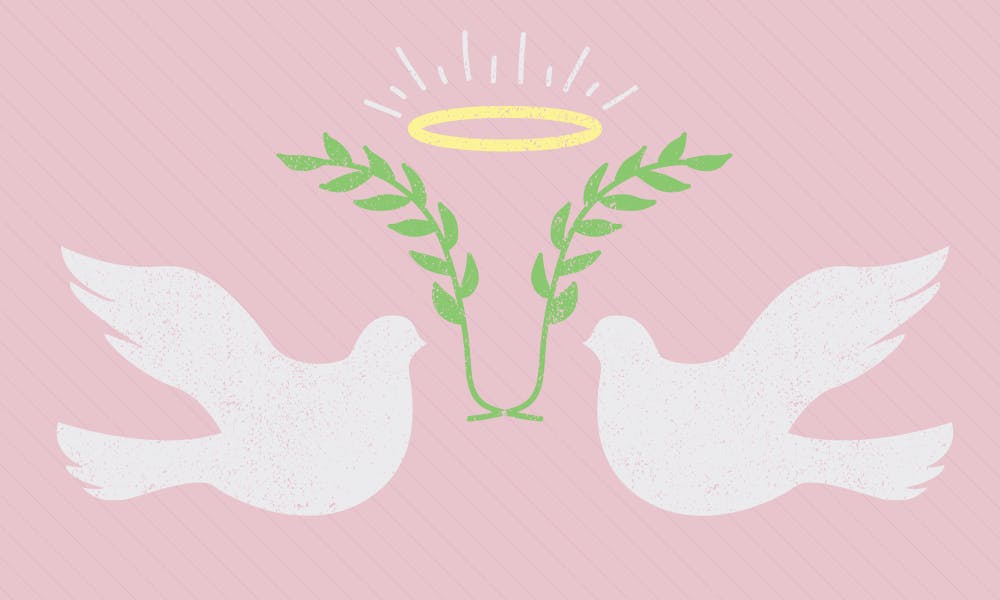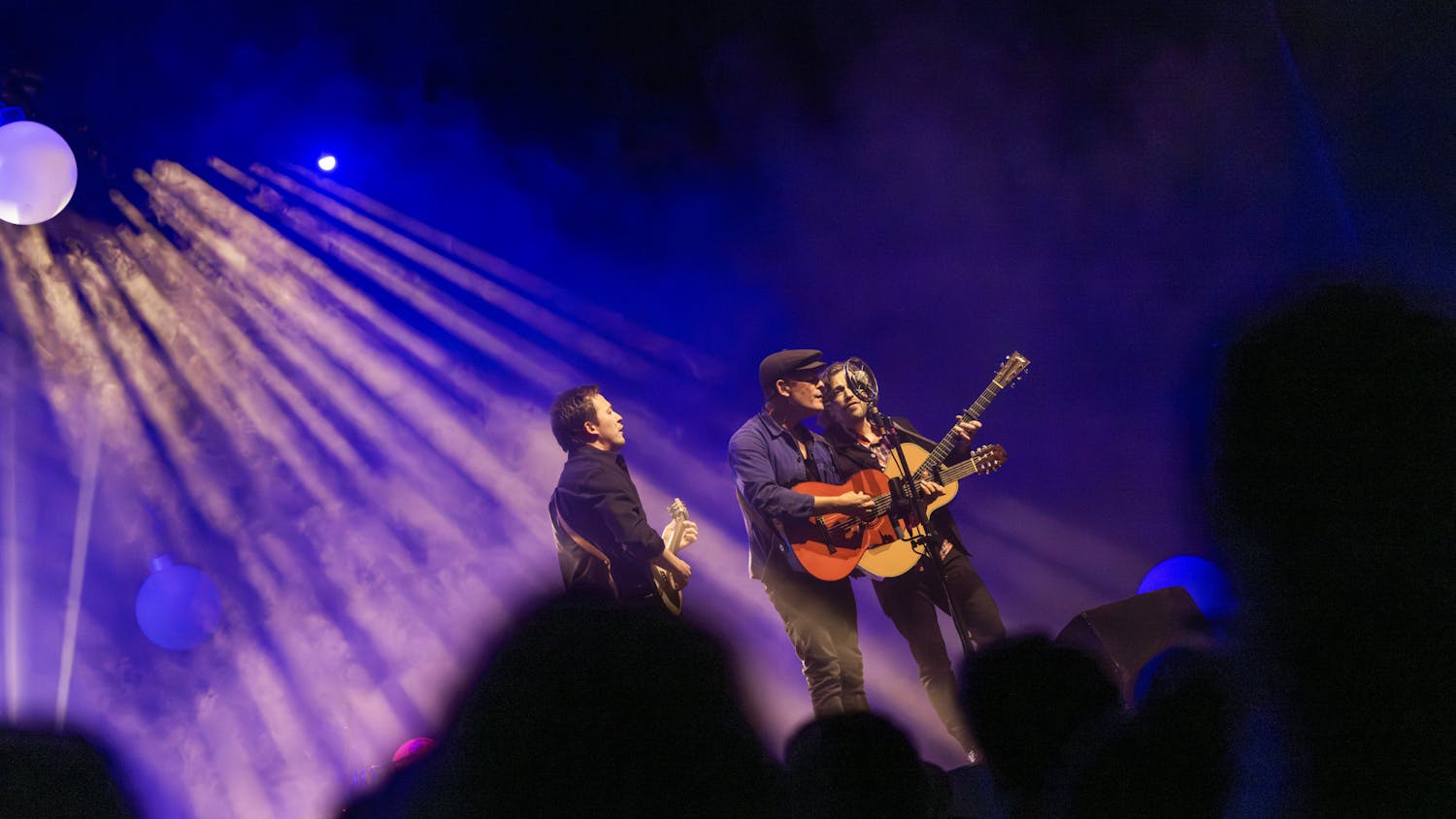I remember the day I forgot the Nicene Creed. The space in my brain that once held the 32–line prayer had emptied at some point during my first semester of college. I was no longer used to reciting the statement of Christian beliefs every Sunday; a lack of practice begets a lack of memory. In the car ride home from church that day, I wondered: if I had forgotten the entirety of a prayer that listed the foundational truths of Catholicism, had I also forgotten how to pray?
Truthfully, I used to hate church. Raised Catholic, I’d been attending mass with my father and sisters every Sunday at 7:45 a.m. without fail since I was four years old. I hated the sound of the organ. I hated the hard pews we had to sit on for an hour. And I hated the weird smell of the place, like old ladies’ perfumes mixed with mildew, dust, and a hint of incense. By my senior year of high school, I began subconsciously counting down the days until I no longer had to suffer these weekly burdens.
With age, I also began to question the validity of the story behind Christianity. I wasn’t sure I really bought into Jesus’ resurrection, and had trouble visualizing unleavened bread and some bitter red wine as body and blood. I drifted from the Catholic church, but still felt grounded by certain experiences I’d had within it. I loved the warm candlelit silence of mass on Christmas Eve, with everyone pushed close together as we listened to a sermon that always spoke of joyous renewal. I loved being in the presence of religious artwork, especially from the Middle Ages, before representation became too realistic, and I always tried to identify the biblical figures with golden halos encircling their heads. But most of all, I loved the feeling I got after some mass or artwork truly affected me: a sense of restful peace, a faith that all could and would be okay.
I lost that feeling for a while, probably around the same time I lost the Nicene Creed. Because I didn’t really believe in God or Jesus, I called myself an atheist, and I neglected faith in my life. Certainly by no coincidence, memories from that time are now tinged with a desperate darkness. Without faith, recognition of love or the divine in the everyday became impossible, and every trial I faced seemed to take place in oppressive isolation as I had let my interior support system crumble.
But in this darkness were glimmers of hope, signs that my faith was still with me. I stuffed my bookshelf with poetry books, reciting them aloud to myself in solitude as if they were prayers. I would light candles at night—not so much for the sweet aroma, but for the way they reflected invisible movements of air around them, a ubiquitous yet oft–unseen force. I savored the stories of authors like Patti Smith or James Baldwin, who spoke of complex relationships with religion, but full endorsements of faith.
I began to take better care of my creative soul—the one that dreams and innovates, the one that is inherently tied to faith. I set aside time at the beginning and end of each day for reading poetry, making space for a ritual that I hoped would bring back the foundation I had lost. By a stroke of divine luck, a few months after fully adopting this new practice, a close friend asked me to attend her Baptism.
When I entered the church that bright Sunday morning last spring, I finally felt the old feeling of peace that I derived from these traditional places of worship and fellowship. I realized that even if I couldn’t align with some of the beliefs of Christianity, it came with a community that was paramount to finding my new idea of faith. I wanted to choose to lead a life in the spirit, whatever that may be, and surround myself with others who had their own versions of this same goal and inspired me to stay in steady pursuit of it.
But this summer, the romance of reading poetry and lighting candles wasn’t enough to keep my faith from being tested. When the formula of my life lost its order, and a plan for renewal led to disintegration, I worried that another phase of harrowing darkness awaited me. And while perhaps one did, and several certainly still do, I realized that faith is a way of receiving suffering without unending doom, following the words of scripture that tell us to “count it all joy—when we meet various trials.” No one said it would be easy, but despite the rockiness of some major life plans gone awry, I kept my footing.
Though my journey of finding faith began several years ago, speaking about it is still difficult for me. Especially in academic environments, we often praise leaders who are rigid in their approach to life, and see displays of emotion or professions of faith as weaknesses. It's taboo to discuss spirituality and the love that feeds it, even though many of us consider love to be one of the primary motivations of our lives. I still struggle to communicate this way of thinking without sounding wishy–washy, but my faith is the idea that love is the one all–powerful, all–saving force in this world.
My earliest exposure to spirituality was through Christianity, but, while biblical stories still resonate with me, my spirituality is no longer tied to an organized religion. I’ve learned a new kind of prayer that allows me to connect with the divinity of the world in poetry, art, music, and activity, so that I can always keep in touch with the needs of my spirit. Though prayer is a form of everyday ritual, practice is not always easy, and I know that there will be dark days when I doubt faith and scoff at every idea I’ve discussed here. But I almost look forward to those days, because when it comes to spiritual practice, the reward is in the effort. Only when we open our hearts to our own versions of spiritual awakening can we also open them to love.







